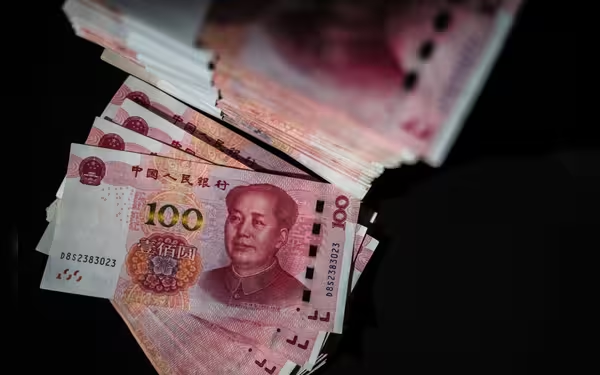Saturday, November 16, 2024 05:35 PM
China Faces Dilemma Over Potential Rate Cuts Amid US Fed Easing
- PBoC considers following US Fed's rate cut decision.
- Chinese yuan appreciates, impacting bank profits.
- Market anticipates loan prime rate reduction soon.
 Image Credits: asiatimes
Image Credits: asiatimesChina's PBoC faces a dilemma over rate cuts following US Fed easing, impacting the yuan and bank profits.
The People’s Bank of China (PBoC) is currently facing a significant challenge as it considers whether to follow the United States in implementing major monetary easing measures. This decision comes at a time when the Chinese yuan is appreciating, which could impact the profits of Chinese banks. Recently, the US Federal Reserve made a notable move by lowering its key lending rate by 0.5 percentage points, bringing it down to a range of 4.75% to 5%. This marks the first easing in the US since 2019, and it was a larger cut than the usual 0.25 percentage points. Fed Chair Jerome Powell emphasized that high borrowing costs, which were initially set to combat inflation, should not negatively affect the US economy.
As the US dollar weakened, the on-shore renminbi saw an increase of 233 basis points, closing at 7.066 per dollar on Thursday. This is the strongest closing value since May 26, 2023. Over the past two months, the renminbi has appreciated by 2.8%, as traders anticipated that the US Federal Reserve would lower interest rates in September. In light of these developments, market analysts are speculating that the PBoC may cut its loan prime rate (LPR) by 20 basis points in the near future. This information was reported by the Securities Times, a state-owned newspaper.
There is a growing expectation among market participants for a reduction in existing mortgage rates and the introduction of economic stimulus measures. Other Chinese media outlets, including iFeng.com, have echoed the sentiment that the PBoC is likely to announce rate cuts soon. Although officials have not confirmed these reports, stock traders have been quick to capitalize on the situation, leading to a rise in stock market indices. The Shanghai Composite Index increased by 0.69%, reaching 2,736, while Hong Kong’s Hang Seng Index surged by 2%, closing at 18,013 on Thursday.
This situation presents a complex dilemma for the PBoC. On one hand, easing monetary policy could help to stabilize the economy and support growth. On the other hand, it could also lead to reduced profits for banks, which is a significant concern. As the global economy continues to navigate through uncertain waters, the decisions made by the PBoC will be closely watched, not just in China but around the world. The balance between supporting economic growth and maintaining the health of the banking sector is a tightrope that the PBoC must walk carefully. Ultimately, the choices made in the coming days will have far-reaching implications for both the Chinese economy and the global financial landscape.













